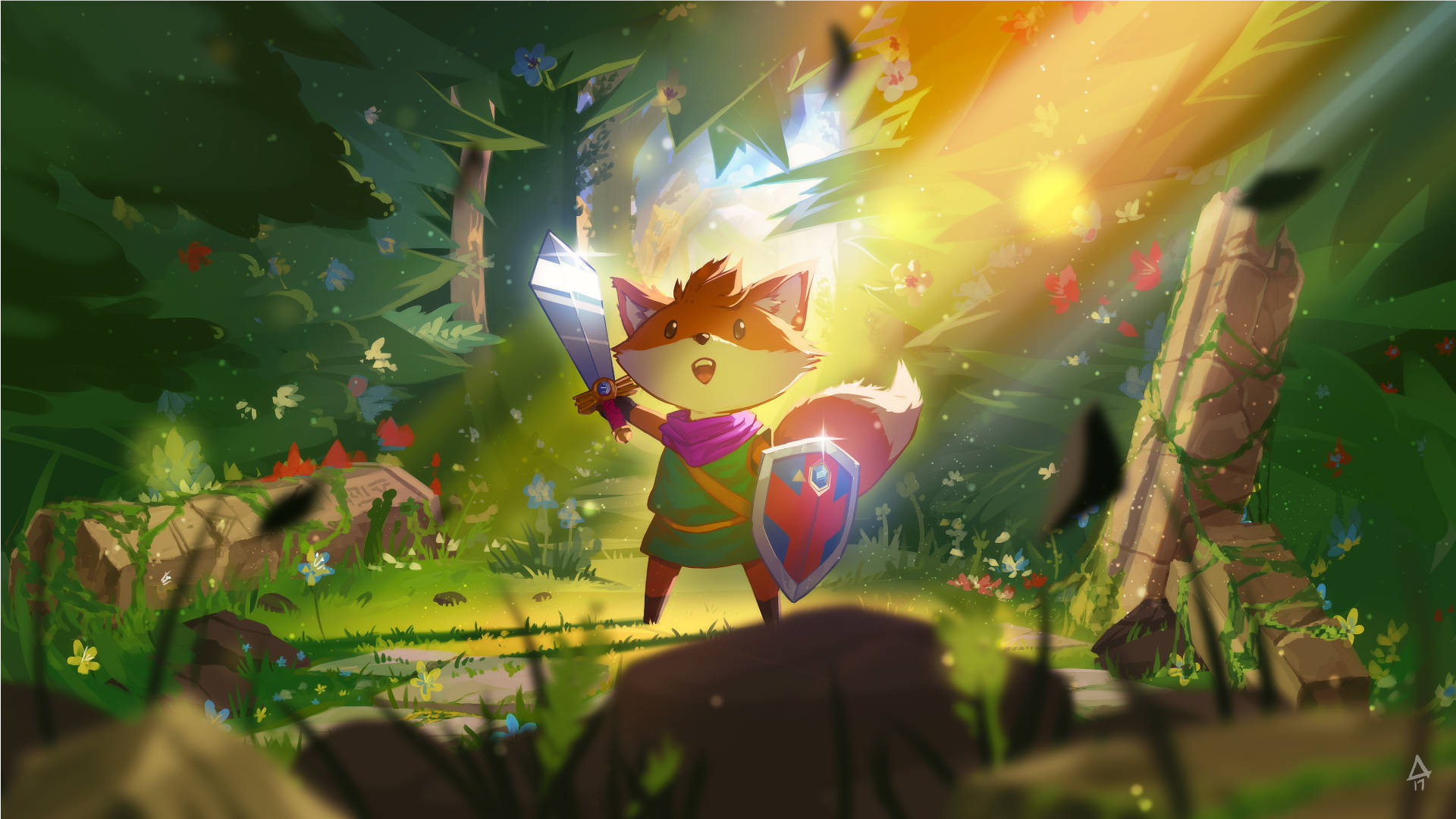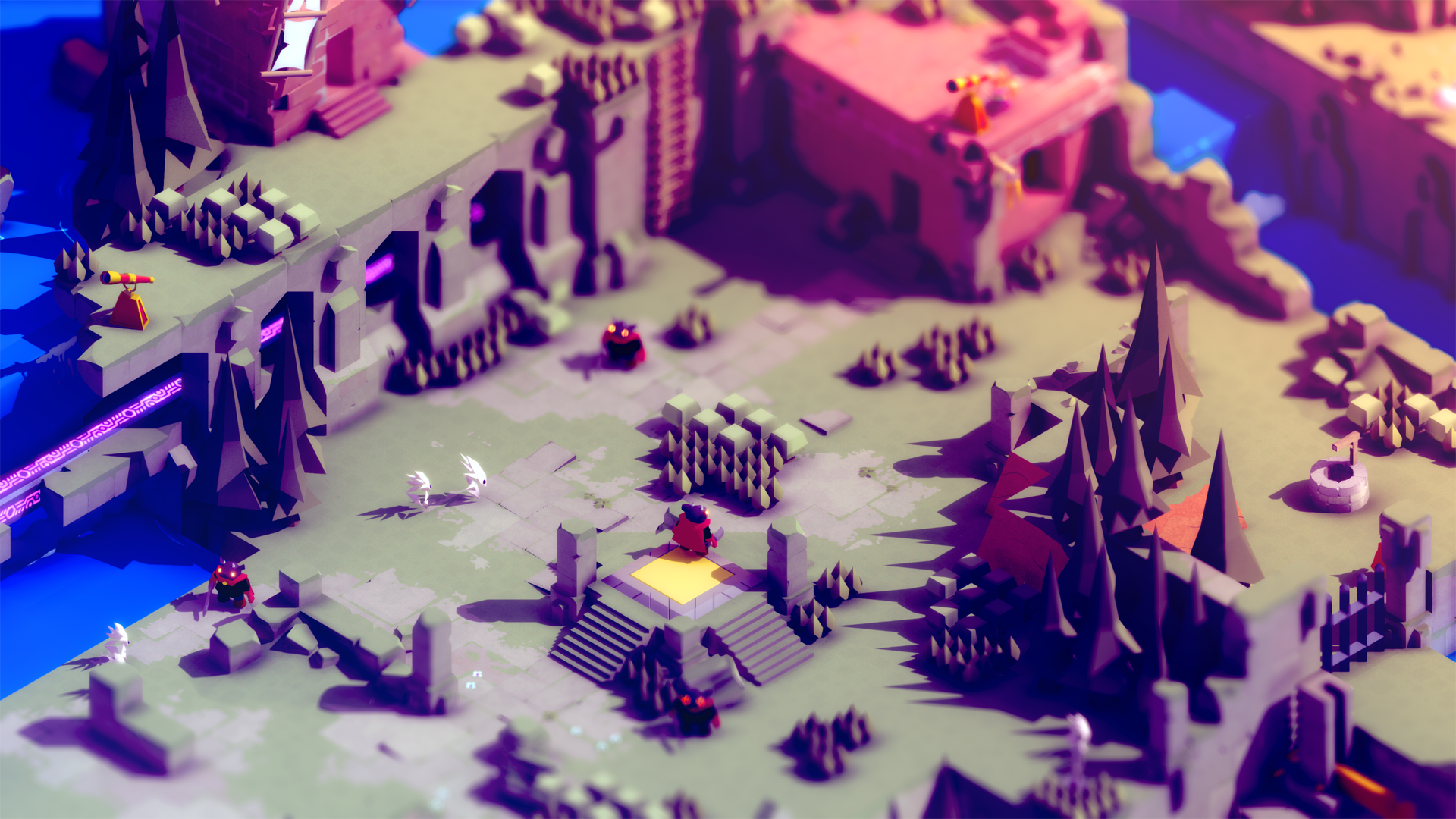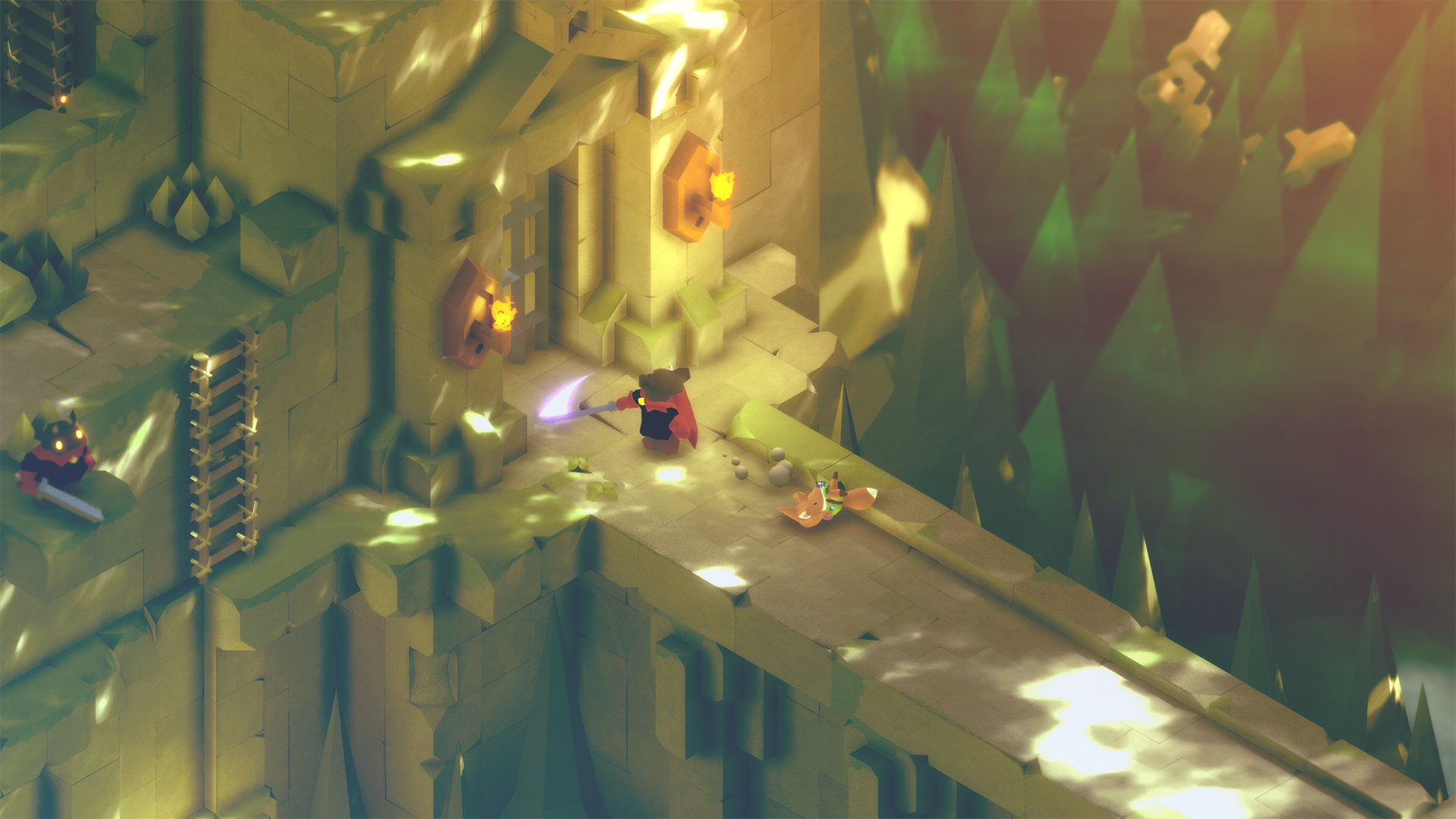The world of indie games has grown by leaps and bounds over the last decade, with developers around the world producing some of the most creative and enjoyable experiences to date. Bastion, Axiom Verge, Stardew Valley, Hades — they’re all standout examples from independent developers that have pushed gaming in an incredible direction to create generation-defining experiences. Now, TUNIC is about to take its place among the greats.
Developed by a single developer, Andrew Shouldice, TUNIC puts you in the role of a heroic little fox who wakes in a foreign land and is launched into a new adventure immediately. Within a few minutes of starting TUNIC, it’s clear it takes plenty of inspiration from old-school titles like The Legend of Zelda.
TUNIC Review: Feelin’ Foxy
Unlike many of today’s top releases, TUNIC doesn’t give you objective markers or quest lists that guide their way. You start with absolutely nothing before finding items like a stick to fight off blob-like enemies and health potions to regain life.
There are no information popups during gameplay. Instead, pages of an instruction booklet are scattered throughout the world that share tidbits of information to help guide your way. The trick here is that these pages are filled with information in an unknown language mixed with basic details for weapons and items that you’ll find throughout your journey. You’ll also find a stylized world map with key locations to help point you in the right direction throughout your adventure.
The lack of deliberate direction can take some time to get used to, especially after coming off of others games that use HUDs and markers to guide you along. It’s this notebook system that helps TUNIC succeed in capturing that old-school approach, with the first page kickstarting your adventure, sharing information about a locked golden door that holds a treasure that some say holds the key to eternal life. Who wouldn’t want to chase after that?
Each new area grants key items and abilities that you’ll need to access and make your way through future regions or even loop back to earlier locations and find hidden areas that you may have missed on your first visit. A golden pathway on the map outlines your route for the main game objectives, but TUNIC’s world hides a new discovery around every corner.
On top of bringing back the classic “check behind the waterfall” game design, TUNIC also hides everything from treasure chests to hidden shortcuts across every corner of the map. Checking behind buildings and peeking into cracks in walls can at the very least add some consumables to your inventory or at most cut the time that it takes you to travel from one area to another.
Just like its minimalist world filled with hidden secrets, TUNIC is packed with much more than what first meets the eye. While you start out with nothing more than a stick, a sword, shield, plenty of special items and abilities are thrown into the mix that add a nice level of depth to combat. Shrines are also scattered around, giving you the chance to rest and regain your health along with the option to perform sacrifices that upgrade your health, stamina, and magic bars, your attack, and your defense abilities.
From basic blobs and spinning “slorms” to sword-wielding “rudelings”, each enemy brings a unique set of attacks that are easily handled with the right rhythm of blocking and attacking. Boss fights are where things get interesting. The combat is something like what you’d get in a Dark Souls or Death’s Door; you’ll learn the enemy’s behaviors and time attacks to whittle down their health bars bit by bit.
Enemies are positioned deliberately throughout the game world, sometimes putting up such a strong fight that progression is blocked until character upgrades give you the power that you need to take them on.
TUNIC delivers top-tier game design, but it would be a crime to gloss over how well it looks and plays. The game takes up just over 1GB (yes, one gigabyte) and has a high level of polish and optimization that keeps it locked at 144hz at 1440p on a mid-range PC. Even with modest spec requirements, fantastic water and lighting effects add beauty and elegance to every part of the world. The occasional wave lapping up against a rock, a fish swimming by, or dust floating in a shaft of light are just several examples of the elements that come together to make the world feel vibrant and alive.
TUNIC Review — The Bottom Line
Pros
- Gorgeous art style
- Strong focus on old school discovery
- Satisfying, varied combat
Cons
- Heavily relying on the map for direction can feel tedious at times.
In some ways, TUNIC is a lot like Elden Ring in that it breaks from the guided experiences that have been popularized by games like Far Cry and Assassin’s Creed. It’s been a long time since a game has successfully delivered this style of adventure. Referring to a map, discovering new enemies, and unlocking new paths to progress cultivates a sense of accomplishment.
TUNIC brings together a gorgeous art style, phenomenal gameplay, and old-school game design baked directly into the way you discover the world, delivering one of the most enjoyable games I’ve played in years.
[Note: Finji provided the copy of TUNIC used for this review.]









Published: Mar 14, 2022 08:11 pm